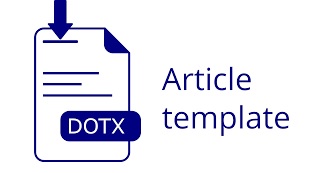Strengthening Gender Equality in Small Business and Achieving Sustainable Development Goals (SDGS): Comparative Analysis of Kenya and Nigeria
DOI:
https://doi.org/10.30656/sawala.v10i2.5663Keywords:
Africa, Development, Entrepreneur, Entrepreneurial gap, Gender parity, Poverty alleviationAbstract
There is an increasing understanding that Sustainable Development Goals (SDGs) can protect the planet, reduce inequality and tackle poverty. However, many small business owners and entrepreneurs in Africa still see it as a misery. This study aims to determine whether the SDG's goal number five (5) is being used to motivate gender equality among small and medium-sized enterprises in Africa, particularly in Kenya and Nigeria. The study focuses on female entrepreneurs. The target population comprised 110 randomly selected businesses operating in Embakasi East constituency in the Embakasi ward in Nairobi County, Kenya, and Ikeja Local Government in Lagos Mainland of Lagos state Nigeria. The sample size was determined by relying on a prior study on women in business in Africa. The study adopted a qualitative research method, administering open-ended interviews to the respondents, and the response rate was 90.91%. Descriptive statistical analysis was adopted, and the examination of the data demonstrated that a significant number of women working in SMEs are unaware of the SDGs in the two countries despite the United Nations (UN) supporting gender equality. The research concludes that there is still a considerable difference between men and women in SMEs in Africa and the awareness of SDG goals is limited. It is recommended that the management of small businesses, regulators, and policymakers should increase the knowledge of the global goals for more awareness and sustainability adoption in African countries. This can also support sustainable business growth and close the inequality gap in small African businesses
References
Abonge, C.V. (2012). Assessing the impact of women’s enterprises on household livelihoods and survival: Evidence from the North West Region of Cameroon, Greener Journal of Social sciences, 2 (5), 147 – 159.
Acs, Z. J., & Szerb, L. (2007). Entrepreneurship, economic growth and public policy. Small business economics, 28(2), 109-122.
Afolabi, A. (2015). The effect of entrepreneurship on economy growth and development in Nigeria. International Journal of Development and Economic Sustainability, 199 3(2), 49-65. Retrieved from http://www.eajournals.org/wp-content/ uploads/TheEffect-of-Entrepreneurship-on-Economy-growth-and-development-in-Nigeria.pdf
African studies centre Leiden. (2020, June 18). African women and the sustainable development goals. African Studies Centre Leiden. https://www.ascleiden.nl/ content/webdossiers /african-women-and-sustainable-development-goals
Aladejebi, O. (2020). 21st Century challenges confronting women entrepreneurs in Southwest Nigeria, Archives of Business Research, 8(3): 261-280
Alon, T., Doepke, M., Olmstead-Rumsey, J., & Tertilt, M. (2020). The Impact of COVID-19 on Gender Equality. doi:10.3386/w26947
Alsos G. A., Isaksen E. J., & Ljunggren E. (2006). New venture financing and subsequent business growth in men- and women-led businesses. Entrepreneurship Theory and Practice, 30(5), 667–686. https://doi.org/10.1111/j.1540-6520.2006.00141.x.
Akinbami, C. A. O., & Aransiola, J. O. (2016). Qualitative Exploration of Cultural Practices Inhibiting Rural Women Entrepreneurship Development in Selected Communities in Nigeria. Journal of Small Business and Entrepreneurship, 28(2), 151-167. https://doi.org/10.1080/08276331.2015.1102476
Amaechi, E. (2016). Exploring barriers to women entrepreneurs in Enugu State, Nigeria. (Doctoral dissertation, Walden University) Retrieved from http://scholarworks.waldenu.edu/dissertations
Ansari, N., Jabeen, N., Moazzam Baig, A., & Salman, Y. (2016). Diversity Management: Towards a Theory of Gender Sensitive Practices. Bulletin of Education and Research, 38(2), 293-306.
Atef, T. M., & Al-Balushi, M. (2015). Entrepreneurship as a means for restructuring employment patterns. Tourism and Hospitality Research, 15(2), 73–90.
Babajide, A., Lawal, A., Asaleye, A., Okafor, T., & Osuma, G. (2020). Financial stability and entrepreneurship development in sub-Sahara Africa: Implications for sustainable development goals. Cogent Social Sciences, 6(1), 1798330. https:// doi.org/10.1080/23311886.2020.1798330
Bailey, L. E. (2016). Feminism, liberal. The Wiley Blackwell Encyclopedia of Gender and Sexuality Studies, 1-3.
Belwal, S., Belwal, R., & Al Saidi, F. (2014). Characteristics, motivations, and challenges of women entrepreneurs in Oman's Al-Dhahira Region. Journal of Middle East Women's Studies, 10, 135–151. doi:10.2979/jmiddeastwomstud.10.2.135
Bioulac, A., & Bouée, C. E. (2018). Women in Africa entrepreneurship: A path to women empowerment. Retrieved from Women in Africa Philanthropy website: https://wia-initiative.com/wp-content/uploads/zpress/WIA_Women_Empowerment.pdf
Birhanu, A. G., Getachew, Y. S., & Lashitew, A. A. (2022). Gender Differences in Enterprise Performance During the COVID-19 Crisis: Do Public Policy Responses Matter? Entrepreneurship Theory and Practice, 46(5), 1374–1401. https://doi.org/ 10.1177/10422587221077222
Bradshaw, S., Castellino, J., & Diop, B. (2017). Women’s role in economic development: Overcoming the constraints. Did the Millennium Development Goals Work?. https://doi. org/10.1332/policypress/9781447335702.003.0008
Chatjuthamard, P., Jiraporn, P., Lee, S.M. (2021). Does board gender diversity weaken or strengthen executive risk-taking incentives? PLoS ONE 2021, 16, e0258163
Chen, S., Ni, X., Tong, J.Y. (2016). Gender diversity in the boardroom and risk management: A case of R&D investment. Journal Business Ethics 136, 599–621.
Dabić, M., Dana, L. P., Nziku, D. M., & Ramadani, V. (Eds.). (2022). Women Entrepreneurs in Sub-Saharan Africa: Historical Framework, Ecosystem, and Future Perspectives for the Region. Springer Nature.
Demartini, P., Cesaroni, F. M., & Paoloni, P. (2019). Women in business. G7 France Biarritz. (2019). Promoting Women’s Entrepreneurship in Africa. Ministry of Foreign Affairs of Japan. https://www.mofa.go.jp/files/000510612.pdf
Garba, A. S. (2011). Stumbling block for women entrepreneurship in Nigeria: How risk attitude and lack of capital mitigates their need for business expansion. European Journal of Economics, Finance and Administrative Services, 36, 39–49.
Glazebrook, T., & Opoku, E. (2020). Gender and sustainability: Learning from women’s farming in Africa. Sustainability, 12(24), 10483.
Hendrickson Publishers. (2004). The Holy Bible: King James Version.
Iyiola, O., & Azuh, D. (2014). Women entrepreneurs as small-medium enterprise (SME) operators and their roles in socio-economic development in Ota, Nigeria. International Journal of Economics, Business and Finance, 2(1), 1–10.
Jubril, B., & Samson, O. S. (2022). Why the sustainable development goals matter in Africa? African Business Journals 5(3), 73-82.
Kalleberg, A. L., & Leicht, K. T. (1991). Gender and organizational performance: determinants of small business survival and success. Academy of Management Journal, 34(1), 136- 161.
Laidoja, L. Li, X. Liu, W. & Ren, T. (2022). Female Corporate Leadership and Firm Growth Strategy: A Global Perspective. Sustainability 2022, 14, 5578. https://doi.org/10.3390/su14095578
Mero-Jaffe, I. (2011). ‘Is that what I said?’ interview transcript approval by participants: An aspect of ethics in qualitative research. International Journal of Qualitative Methods, 10(3), 231-247. https://doi.org/10.1177/160940691101000304
Minniti, M. (2010). Female Entrepreneurship and Economic Activity. European Journal of Development Research, 22(3), 294-312. https://doi.org/10.1057/ejdr.2010.18
Ning, E. N. (2021). Entrepreneurship and Economic Development in Africa: A Paradox. In Enterprise and Economic Development in Africa, Emerald Publishing Limited, 15-37.
OECD. (2021). Entrepreneurship Policies Through a Gender Lens. OECD Studies on SMEs and Entrepreneurship, OECD Publishing, Paris. https://doi.org/ 10.1787/71c8f9c9-en.
Onditi, Francis, and Josephine Odera. "Gender equality as a means to women empowerment? Consensus, challenges and prospects for post-2015 development agenda in Africa. " African Geographical Review 36.2 (2017): 146-167.
Olubiyi, T. (2022), Post COVID-19 struggles and customer expectations, The Guardian Newspaper https://guardian.ng/opinion/post-covid-19-struggles-and-customer expectations/ 7th June, 2022.
Olubiyi, T.O. (2020). Knowledge management practices and family business profitability:
Evidence from Lagos state, Nigeria, Arabian Journal of Business and Management Review (Nigerian Chapter),6(1) 23-32.
Olubiyi, T. O., Egwakhe, J., & Akinlabi, B. H, (2019). Knowledge Management and Family Business Continuity: The Moderating Effect of Length of Time in Existence. Global Journal of Management and Business Research,19(5).29-35.
Onditi, F., & Odera, O., (2017). Gender equality as a means to women empowerment? Consensus, challenges and prospects for post-2015 development agenda in Africa, African Geographical Review, 36:2, 146-167, DOI: 10.1080/19376812.2016.1185737
Post, C., Lokshin, B., & Boone, C. (2022). What changes after women enter top management teams? A gender-based model of strategic renewal. Academic Management Journal, 65, 273–303.
Sajjad, M., Kaleem, N., Chani, M. I., & Ahmed, M. (2020). Worldwide role of women entrepreneurs in economic development. Asia Pacific Journal of Innovation and Entrepreneurship, 14(2), 151-160. https://doi.org/10.1108/apjie-06-2019-0041
Sarkis, S. (2019). Gender Inequality Led to the Rise of Women Entrepreneurs. Forbes. https://www.forbes.com/sites/stephaniesarkis/2019/03/05/gender-inequality-led-to-the-rise-of-women-entrepreneurs/?sh=7b6cff254374
Sumaira, R., & Muhammad, A. R. (2012). Gender and workâ€life balance: A phenomenological study of women entrepreneurs in Pakistan. Journal of Small Business and Enterprise Development, 19, 209–228
Tajudeen, O. A., & Adebayo, F. O. (2013). Gender, economic activity and poverty in Nigeria. Journal of Research in Peace Gender and Development, 2, 106–125. doi:10.14303/grpgd.2013.103
Ukwueze, E. R. (2022). Women and Entrepreneurship in Nigeria: What Role Does Social Inclusion play?. Journal of International Women's Studies, 23(5), 41-62.
UNDP. (2021). Sustainable development goals. UNDP | United Nations Development Programme. https://www.undp.org/sustainable-development-goals
Waring, M. (1988). If Women Counted: A New Feminist Economics; Harper & Row: New York, NY, USA,
Vracheva, V., & Stoyneva, I. (2020). Does gender equality bridge or buffer the entrepreneurship gender gap? A cross-country investigation. International Journal of Entrepreneurial Behavior & Research, 26(8), 1827-1844. https://doi.org/10.1108/ijebr-03-2020-0144
Yacus, A., Esposito, S. & Yang, Y. (2019). The Influence of Funding Approaches, Growth Expectations, and Industry Gender Distribution on Highâ€Growth Women Entrepreneurs. Journal of Small Business Management, 57(1), 59-80.
Yang, P. Riepe, J. Moser, K. & Pull, K. (2019). Terjesen, S. Women directors, firm performance, and firm risk: A causal perspective. Leadership Quarterly., 30, 101297.
Yenilmez, M. I., & Bingöl, U. (2020). Gender and the labor market: Key facts and the trends in equal employment. Peter Lang Gmbh, Internationaler Verlag Der Wissenschaften









